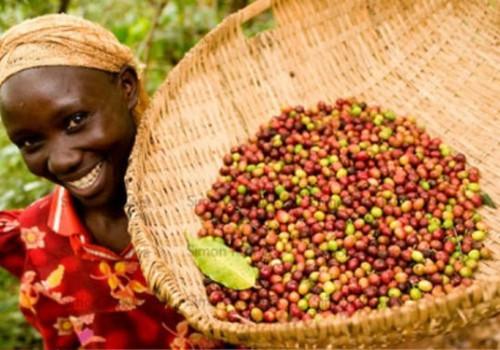
Cameroon: new drop in coffee production during 2014-2015 season, at 23,865 tons

(Business in Cameroon) - The production target of 40,000 tons of coffee planned by the Cameroonian Minister of Trade during the launch of the 2014-2015 coffee season on 5 February 2015 in Bafoussam, was not reached. According to the Cocoa and Coffee Inter-professional Council (CICC in French), the national coffee production sold in 2014-2015 peaked at 23,865 tons, a drop of more than 27% compared to the 32,800 tons produced during the previous season.
In detail, the production of the Robusta variety reached 21,846 tons, with a little over 2,000 tons additionally for Arabica. Though it is again decreasing, as has been the case for at least 5 years, the 2014-2015 production is however larger than the 16,142 tons produced in 2012-2013, which was the worst season “out of the last 50 years” for the country, according to CICC, who noted in its synoptic report of the 2014-2015 coffee season that “coffee is dying in Cameroon”.
The reasons for this programmed death of the coffee culture in Cameroon are numerous. The Cocoa-Coffee Council lists scarcity of inputs (fertiliser and plant material), ageing of the farms, “pronounced loss of interest” from producers, dilapidated pulping plants or lack of processing plants in the productions areas, lack of financing, etc.
The only silver lining in the coffee sector in Cameroon, CICC points out, is the local processing, whose local operators have roasted 447 tons during the 2014-2015 season. Even more, CICC stresses, these coffee roasters are “more and more dynamic and performing”. Proof: in June 2015, three Cameroonian coffee merchants were awarded prizes in Paris, during a competition on origin coffees.
This reality seems today to be the only thing fanning the hope of a possible revival of the coffee sector in the country. To succeed, in addition to the implementation of the New Generation project (which aim is to integrate young people in cocoa and coffee farming) in the coffee sector, CICC is considering launching in 2016, the first phase of its Emergency Stimulus Programme of the coffee culture (Purc-Café in French). This phase should lead to the creation of 600 hectares of coffee farms every year during 3 years, in the Western, Eastern and Littoral regions.
Brice R. Mbodiam
Lire aussi
22-06-2015 - Les cafés du Cameroun, du Gabon et du Togo décrochent 5 prix internationaux
Mags frontpage
- Most read 7 days
- shared 1 month
- read 1 month






























